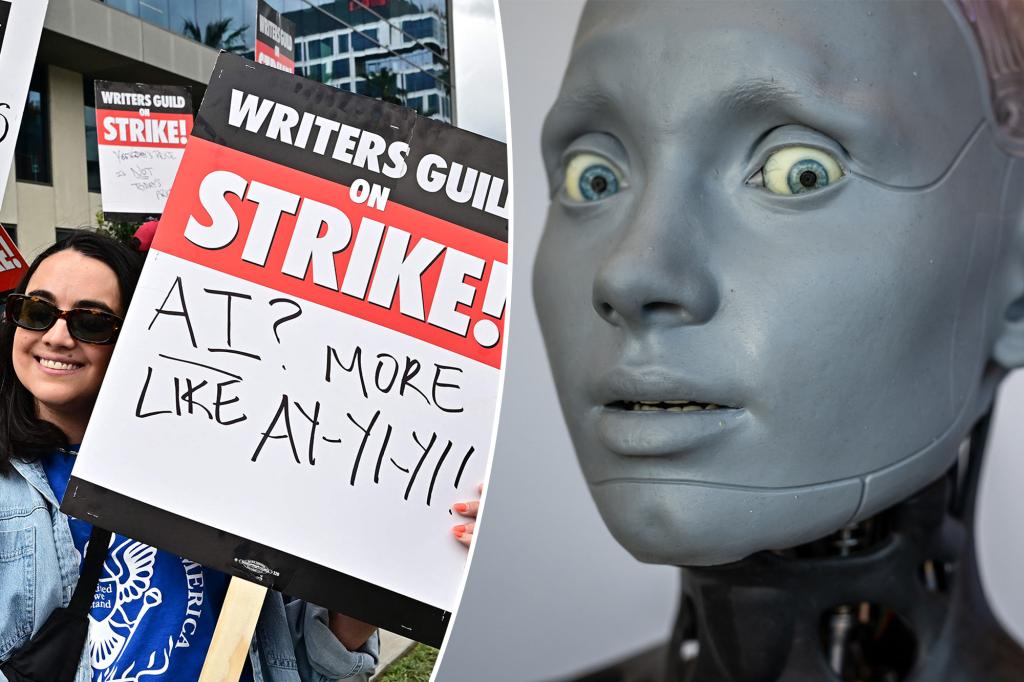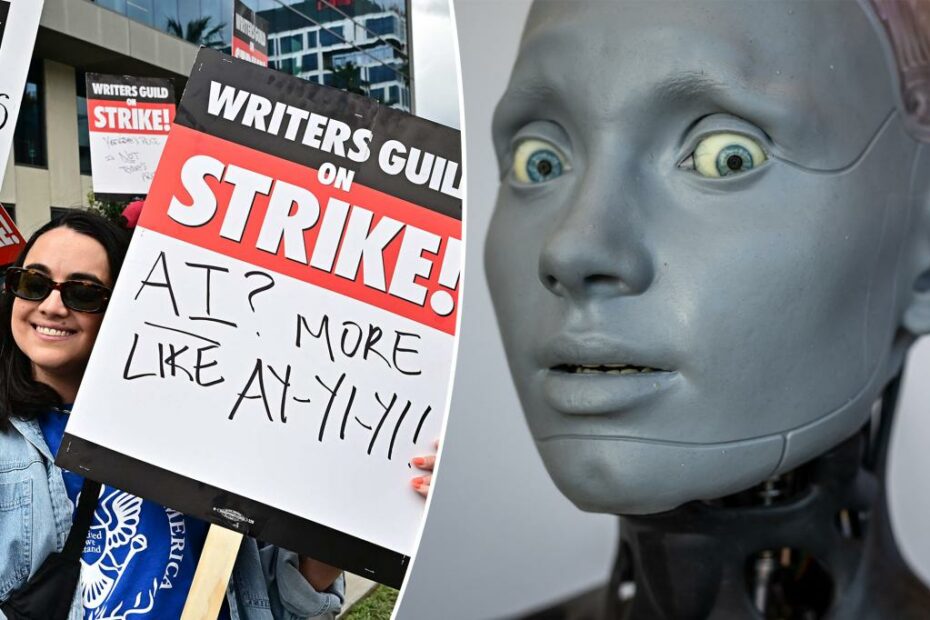Hollywood is terrified of AI stealing their jobs, study shows
Hollywood Worries About AI Taking Over Jobs as Writer’s Strike Looms
As the writer’s strike hangs over Hollywood, a new concern is starting to take center stage – the fear of AI taking over jobs. A survey published exclusively in Variety today reveals that those in the entertainment industry are deeply concerned about the impact of generative artificial intelligence, or AI, on their roles, companies, the industry as a whole, and even the broader cultural environment.
Although only 36% of respondents expressed their worries about generative AI affecting their job security in the next two to three years, global concerns seem to have the majority on edge. A significant 48% expressed worry about generative AI being used for intellectual property infringement, while 43% were somewhat concerned about potential job losses resulting from this. Furthermore, 43% believe that AI will have a significant negative impact on the quality and creativity of the industry.
For context, the survey conducted among entertainment workers in the United States in late June found that 87% were aware of generative AI tools such as ChatGPT and Midjourney, with 65% claiming to have some knowledge of the technology. This awareness highlights the concerns being expressed by those in the entertainment industry regarding its future.
The rise of generative AI has gained momentum as union contracts and negotiations have stalled. Variety’s report notes that organizations such as the WGA, DGA, and SAG-AFTRA are demanding new contract language that provides clarity, protections, and restrictions on the use of generative AI in relation to the employment terms of writers, directors, and actors.
Although generative AI is still in its early stages, respondents were given a list of creative tasks and asked to select all that they believed it could accomplish within the next two to three years. The top response, chosen by 58%, was creating realistic sound effects for film, TV, or games – a task that AI is currently capable of. However, there is uncertainty surrounding the timeline for generative AI tools to reach a certain level of competency.
Interestingly, respondents were skeptical about AI’s ability to write, with only 29% believing it could produce a decent script for film or TV. Some participants in the survey, however, expressed anticipation of how generative AI could assist them in their jobs, such as automating rote or time-consuming manual VFX tasks to deliver high-quality work faster.
While 13% of survey participants admitted to currently using generative AI tools and 17% said they planned to implement them soon, the majority (51%) stated that they, their teams, or their companies do not currently use generative AI and have no intention to do so.
FAQs:
Q: What is generative artificial intelligence (AI)?
A: Generative AI refers to AI technology that has the capability to autonomously create original content, whether it’s artwork, music, or writing.
Q: What were the main concerns expressed by entertainment workers regarding generative AI?
A: The survey revealed concerns about generative AI being used for intellectual property infringement, potential job losses, and the negative impact on the quality and creativity of the industry.
Q: How aware are entertainment workers of generative AI?
A: The survey found that 87% of entertainment workers in the United States were aware of generative AI tools, with 65% claiming to have some knowledge of the technology.
Q: Are there any efforts to address the impact of generative AI in the entertainment industry?
A: Organizations such as the WGA, DGA, and SAG-AFTRA are demanding new contract language that provides clarity, protections, and restrictions on the use of generative AI in employment terms with writers, directors, and actors.
Q: What creative tasks do respondents believe generative AI can accomplish in the near future?
A: The top response was creating realistic sound effects for film, TV, or games, chosen by 58% of respondents.
Q: Is there optimism about AI’s ability to write?
A: No, only 29% of respondents believed AI had a chance of producing a decent script for film or television.
Q: Are entertainment workers currently using generative AI?
A: 13% of survey participants admitted to currently using generative AI tools, while 17% revealed plans to implement them soon. However, 51% stated they have no intention of using generative AI.

Study reveals Hollywood’s fear of AI replacing their jobs
Hollywood is on edge as the writer’s strike looms, but now a new concern has taken hold among showbiz insiders – the prospect of AI taking over jobs. In an exclusive survey published in Variety, industry professionals expressed deep worry about the ways generative artificial intelligence (AI) will impact their roles, companies, industries, and cultural environment. While just 36% of respondents were somewhat concerned about generative AI’s effect on their personal job security in the next few years, global concerns seemed to have the majority worried. In fact, 48% of respondents were concerned about generative AI being used for intellectual property infringement, and 43% expressed worry about potential job losses. A similar percentage also believed that AI would significantly diminish quality and creativity. The survey, conducted in late June among entertainment workers in the United States, revealed high awareness of generative AI tools, with 87% of respondents being aware of tools like ChatGPT and Midjourney, and 65% claiming some knowledge of the technology. Concerns about the future of the industry are being voiced by entertainment workers amid the rise of generative AI.
